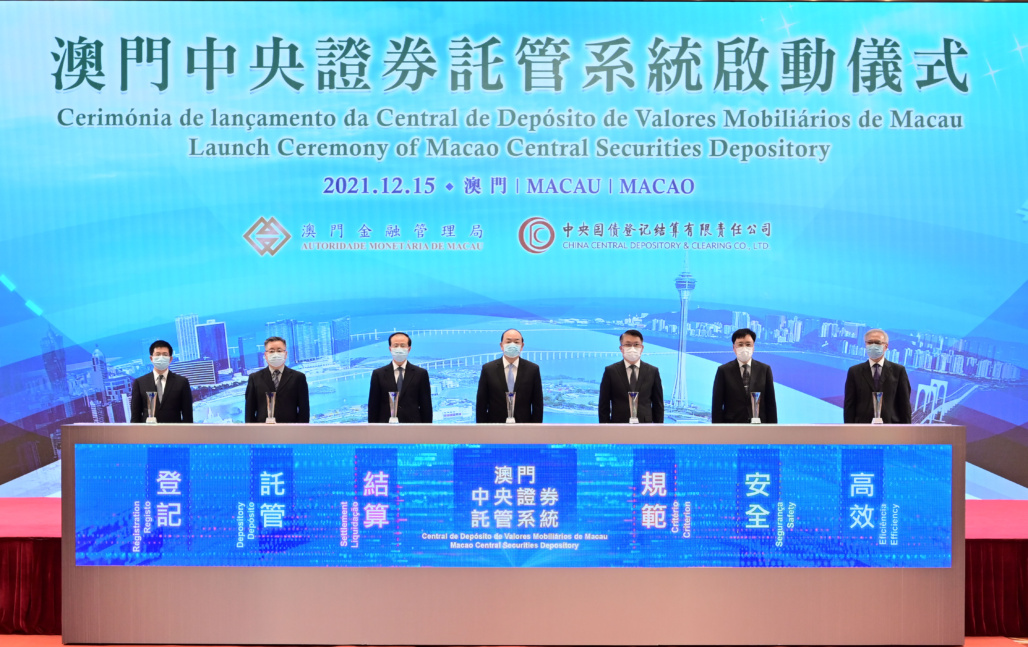The ‘dream’ of establishing a stock market in Macau lasted from 2019 to 2021, only to be swiftly replaced by a highly viable alternative: bonds.
Macau Business | April2024 | Special Report | Modern Finance
In 2019, the Macau Government announced the commissioning of an evaluation study on the creation of a Macau stock exchange from a specialised company. “The Government is currently preparing to select an international consultancy firm to conduct a preliminary study on the feasibility of establishing a stock exchange in Macau,” stated the then Secretary for Economy and Finance, Lionel Leong.
The study aimed to determine whether Macau possessed the necessary legal, supervisory, and regulatory systems, as well as “sufficiently qualified staff to ensure the success of a stock market,” yet it was never made public.
The 2019 announcement was met with some skepticism at the time, following information from the central government indicating its desire for Macau to expand and modernise its financial industry, making it a cornerstone of economic diversification.
Specifically, the Outline Development Plan for the Guangdong-Hong Kong-Macau Greater Bay Area, published by the State Council in February 2019, stated the need to study the feasibility of establishing in Macau a securities market denominated and cleared in yuan, and to explore the development of a Macau-Zhuhai cross-border financial cooperation demonstration zone.
Some years before, the then Chinese Prime Minister Li Keqiang said that “China will support Macau to become a financial services platform.”
No wonder that both the 2020 Policy Address (Ho Iat Seng’s first) stated that “We will strengthen the development of financial software and hardware infrastructure, perfect the legal system governing financial services, (…) and explore ways to establish a stock market using Renminbi for settlement, to facilitate the development of a modern financial services industry.”
In the following year, reference was still made to the intention to “expedite the construction of a stock market using Renminbi for settlement, to promote diverse financial services development,” but from that date onwards, the idea of a stock market disappeared from official documents and began to be replaced by references to the bond market – which actually appears for the first time in Policy Addresses in 2021.
It is not known exactly when the Government realised that the bond market could be the alternative, but it is clear, based on chronology, that everything happened very quickly. The pandemic may have provided the decisive push, as by 2021, the financial sector became the second-largest industry in the SAR, increasing from 6.9 percent of the total gross value added in 2019 to 15.4 percent in 2021. It’s worth noting that during those pandemic-hit years, gaming, the city’s core industry, underwent a deep crisis, contributing to the increased relative weight of the financial services sector. Still, by the end of the third quarter of 2022, the total value of assets in the financial industry reached around MOP 2.7 trillion, equivalent to 19 times the value recorded in the year of Macau’s handover, according to official information.
With several issues already addressed in Macau, an important component was still missing: a new law to regulate the financial system, replacing the one in force since 1993. It came into effect in November last year.

Now the next step is to approve a securities law, which is currently undergoing consultations and could be approved later this year, as the Government hopes.
“The creation of a securities market equipped with adequate financial infrastructure represents a decisive instrument for the coordinated development of the MSAR and the Guangdong-Macau In-depth Cooperation Zone in Hengqin,” Macau Business wrote in January, after reading the consultation paper.
The law is tailored to the bond market and will allow for the attraction of issuers and investors to the local securities market, integration into the Renminbi internationalisation process, market diversification through the issuance of various types of securities, as well as contributing to strengthening the connection between the PRC, Portuguese-speaking Countries, and other countries and regions, and the creation of new employment.
“The Securities Law in Macau is seen as a significant milestone in regulating the securities market,” stress two lawyers from the MdME office, interviewed by Macau Business.
However, António Tam and Jacinto Wong state, “while the Securities Law is drafted to boost modern finance, the government has not benefited from this precious opportunity to modernize the related section in the Commercial Code.”
Both lawyers cite “the obsolete provisions in the bonds chapter still remain unchanged, such as the overlapping of roles between bond holder representative and bond trustee required by the AMCM, the limit of the bond issuance tenor for local companies is still subject to the share capital but not the company’s own funds, etc., and there are also no provisions in the draft bill that address the issues of incorporation of companies by public subscription.”
[Has the idea of a stock exchange been abandoned? Perhaps by the Government, but recently, Lo Choi In, who is also a director at ICBC Macau, argued that it is necessary to achieve the diversification of the local economy, so that “a stock exchange can then be created in the territory.”]
The new Financial System Act

It was considered one of the key pieces to modernize Macau’s financial system and saw the light of day in November last year when it came into force. The new Financial System Act (FSA) replaced a very outdated law from 1993 and was therefore very well received by the general public.
“Overall, these amendments demonstrate a commitment by the Macau government to strengthen its financial system and ensure it keeps pace with the evolving needs of the sector,” according to Pedro Cortés and Calvin Chui, from the Macau-based law firm Rato, Ling, Law & Cortes. The introduction of the e-pataca is just one of several measures signifying Macau’s move away from a focus on the gaming industry, wrote Daniel de Senna Fernandes and Bruno Almeida of Riquito Advogados, to whom “Macau SAR is embarking on a significant journey of digital transformation.”
“The FSA has introduced key amendments that positively impact modern finance, which include replacing the bond approval system with a simplified registration system and implementing a provisional licensing regime for fintech development. These changes enable the controlled testing of fintech projects with manageable risks and specific conditions set by the AMCM,” according to António Tam and Jacinto Wong (MdME).
“However, there are uncertainties in the FSA’s legal interpretation. For example, the categorisation of insurers as “Financial Institutions” may create challenges when conflicts arise with the Macau Insurance Ordinance. Similar issues affect other financial institutions operating under their own special regimes, where relevant FSA chapters are applied with necessary adaptations. Clarification from the AMCM is necessary to address these interpretation concerns,” the MdME lawyers added.
























